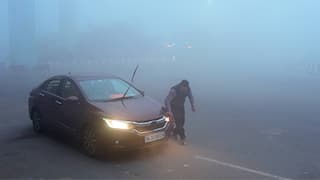G20 Leaders’ Declaration Could be Achieved Because Of ‘Stable’ Consensus: Officials
The G20 New Delhi Leaders’ Declaration could be achieved because the views of each member country were considered to make it a strong document that will act as a future document, sources said.

G20 New Delhi Leaders’ Declaration: The G20 New Delhi Leaders’ Declaration was achieved due to a “stable” consensus that India was able to garner because of the “convergent” approach it took as opposed to a “divergent” one, and it has been a “long journey”, official sources said a day after India was able to bring out a G20 New Delhi Leaders’ Declaration on the first day of the Summit on September 9.
This is the reason why, the sources said, the text and the language concerning the geopolitical aspects of the joint statement, particularly with reference to the Russia-Ukraine war, could not be contested by any country because everyone was taken on board, every viewpoint was heard and put in the comprehensive joint statement that will now act as a template of sorts in the context of the Ukraine conflict.
However, the official sources also made it clear that just because a consensus was achieved among all members of the grouping, including the US, EU, Russia and China, “does not mean” the war will be resolved.
On Saturday, during the first day of the Summit, India was able to achieve a major breakthrough by getting all G20 members to sign into the New Delhi Declaration that upheld Ukraine’s “territorial integrity and sovereignty”. The joint statement this time also steered clear from the “usual sentimentality” of the countries who continue to operate as blocs. On the first day of the summit, leaders chose to directly discuss the joint statement and they shed their quintessential viewpoints on the matter and “converged” on the issue of the conflict “rather than being divisive”, said the sources.
The joint declaration reads: "We note with deep concern the immense human suffering and the adverse impact of wars and conflicts around the world. Concerning the war in Ukraine, while recalling the discussion in Bali, we reiterated our national positions and resolutions adopted at the UN Security Council and the UN General Assembly and underscored that all states must act in a manner consistent with the Purposes and Principles of the UN Charter in its entirety."
It adds: "In line with the UN Charter, all states must refrain from the threat or use of force to seek territorial acquisition against the territorial integrity and sovereignty or political independence of any state. The use or threat of use of nuclear weapons is inadmissible. "The “value proposition was brought at one point and consensus was achieved.”
Speaking about the declaration, one of the sources referred to above said: “The paragraphs on the Russia-Ukraine war in the joint statement are much more than transactional. And that is where the significance of the statement used by the External Affairs Minister lies, that Bali was Bali, New Delhi is New Delhi. There is a substantive underpinning to what is being said.”
They added: “The New Delhi Declaration also looks at how the Russia-Ukraine conflict might get addressed going forward. There are some principles embedded in this. If one focuses on the principles then the pivoting on the Russia-Ukraine paras is not just a transactional pivoting of words but of principles … There is a path there.”
Noting that "today’s era must not be of war", the joint statement said: "We will unite in our endeavour to address the adverse impact of the war on the global economy and welcome all relevant and constructive initiatives that support a comprehensive, just, and durable peace in Ukraine that will uphold all the Purposes and Principles of the UN Charter for the promotion of peaceful, friendly, and good neighbourly relations among nations in the spirit of ‘One Earth, One Family, One Future’."
India’s ‘Strong Leadership’ Held G20 Together: EU
The European Union (EU) said the focus of the entire discussion around the joint statement was on the “geopolitical aspect” in which the Russia-Ukraine war took centre stage.
“From Bali till now, there has been a change in tone and tonality of the emerging countries. There is a lot of change in the perception on the issue of Russia-Ukraine that we noticed this time with the developing countries,” said a senior EU official familiar with the negotiations.
The official said the EU was “satisfied” with the language of the joint statement based on which Russia’s actions and movements as far as the war on Ukraine is concerned, will be “monitored”.
“We (EU) are satisfied with the language of the joint statement and we will monitor Russia’s activities and see that they implement what is mentioned in the joint statement. In the case of Bali there is a split in the text, but that was not the case in New Delhi,” the official said.
The EU also said it was due to India's “strong leadership” that the G20 was saved from falling apart and the continuity was ensured.
“This time Russia was more isolated than they were in Bali and India did a clever thing of including South Africa and Brazil in the process. Brazil and South Africa played a critical role. Bali text was quickly dismissed but the New Delhi statement is here to stay,” said the official.







































